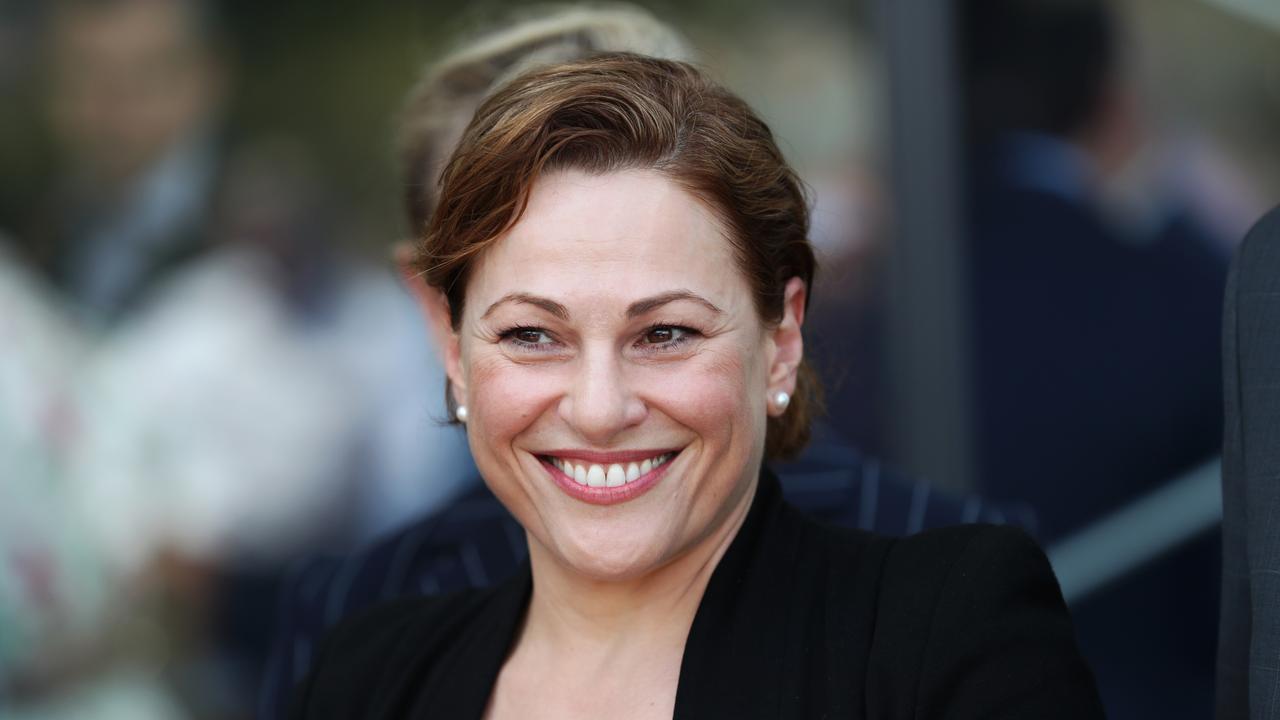Rein in Bligh bounce, LNP told
THE Queensland opposition has been urged to deflate the disaster "bounce" that has put Anna Bligh ahead in the polls.
FORMER Queensland Liberal leader Terry White has urged the state opposition to bring forward policy releases to deflate the disaster "bounce" that has put Anna Bligh and her struggling Labor government back into political contention.
Liberal National Party leader John-Paul Langbroek has been so comprehensively sidelined by the Queensland Premier that he is in danger of becoming the invisible man of state politics.
Ms Bligh's well-received handling of the flood and cyclone emergencies is certain to translate into improved opinion polling, after support for state Labor slumped to near-terminal levels last year.
The challenge for Mr Langbroek is to put the government under pressure without being seen to exploit the disasters politically.
Mr White, who led the Liberal Party in the early 1980s before it crashed out of coalition with then premier Joh Bjelke-Petersen's Nationals, echoed sentiment in senior conservative ranks that Mr Langbroek needed to be more proactive.
"I do think it's time for the opposition to roll out some initiatives," Mr White said. "And I think that is the view of a lot of people on the conservative side of politics."
Mr Langbroek said the opposition would pursue the government over concern about disaster preparation -- including the management of Brisbane's flood shield, Wivenhoe Dam -- as well as criticism that it had failed to deliver promised cyclone shelters for the north, when state parliament resumed next week.
The LNP leader yesterday went after the government for not moving to put powerlines underground in cyclone-prone areas, saying this had been opposition policy for seven years. State Energy Minister Stephen Robertson said it would cost $60billion and was "populist" policy that could never be delivered.
Speaking from the shattered community of Tully Heads, in the cyclone impact zone south of Cairns, Mr Langbroek said rescues in the aftermath of deadly flashfloods on January 10 would have been more effective had the state government adopted another opposition proposal to equip the Queensland police with helicopters. He stopped short, however, of saying this would have saved any of the 29 lives confirmed or feared lost in flooding in Toowoomba and the Lockyer Valley that later engulfed Brisbane.
Mr Langbroek brushed aside concern in LNP circles that Ms Bligh's momentum could result in the ALP regaining political ascendancy in Queensland.
A Newspoll published by The Australian in early January, only days before the southeast Queensland floods erupted, had state Labor out for the count with a primary vote of 26 per cent. Mr Langbroek decisively appointed Ms Bligh on the head-to-head comparison of who would make the better premier.
Online pollster Graham Young on January 31 reported a turn around for Ms Bligh, with 79 per cent of those surveyed approving of her performance during the floods, against only 24 per cent for Mr Langbroek.
One LNP strategist accepted yesterday that the next round of major opinion polls, including Newspoll, would show the Premier had improved her position, possibly dramatically. But these numbers were "soft" and did not reflect the longer outlook for Ms Bligh or the state government.
Mr Langbroek shrugged off the anticipated bounce for Ms Bligh in the polls, saying it would underline that adage that a "week in politics was a long time".



